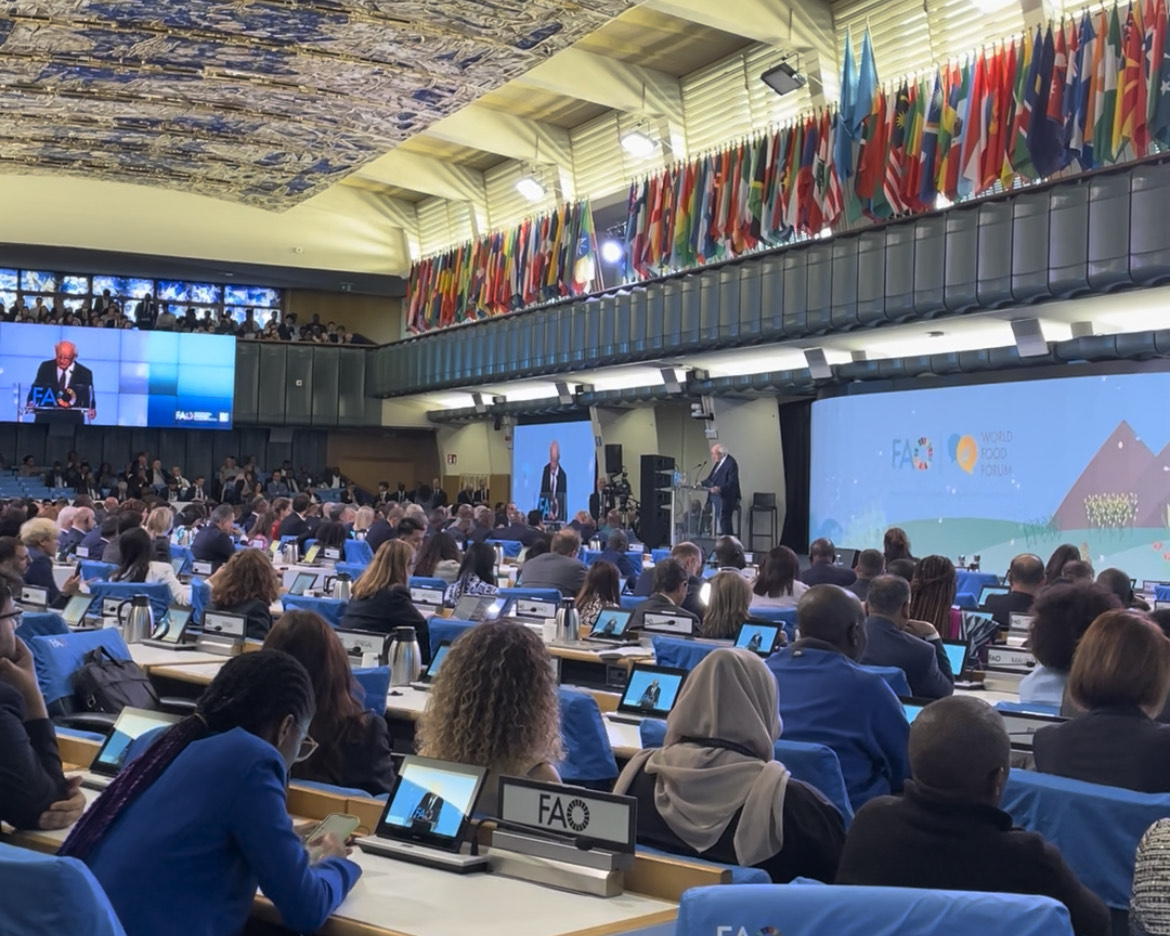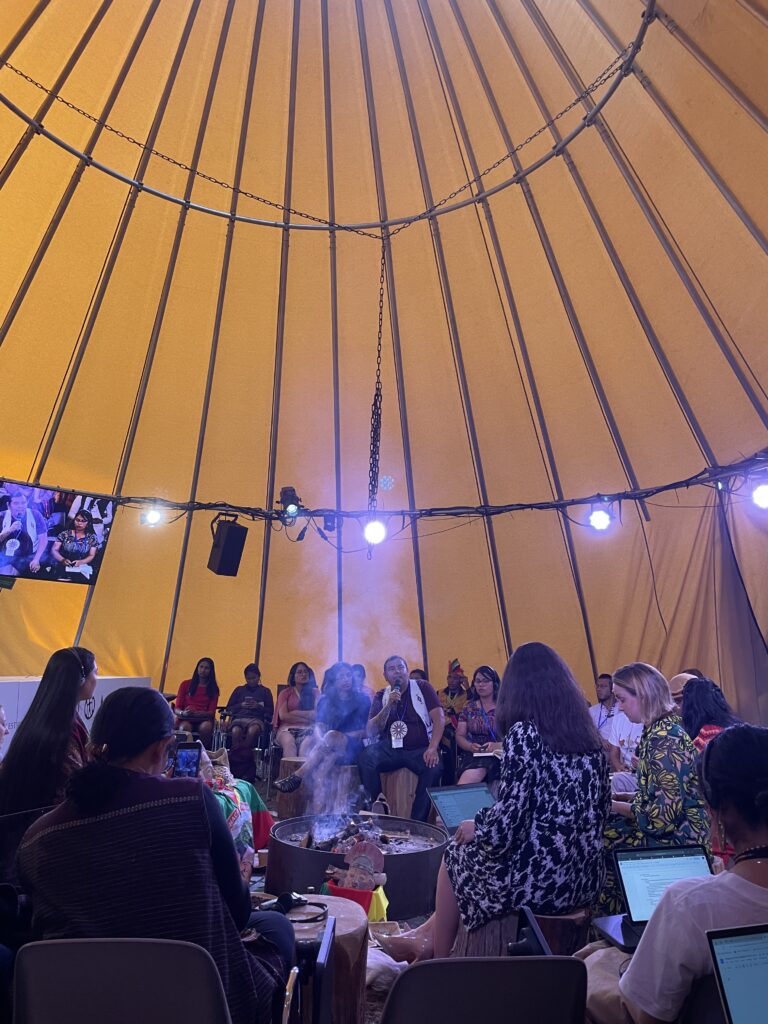
Nick Smaldone

Nick Smaldone
“Another world is not only possible, she is on her way. On a quiet day, I can hear her breathing.”
Arundhati Roy, 2003 World Social Forum
In my last Planet Forward article, I co-authored an open letter to the World Food Forum. However, after attending the forum last month as a youth delegate from the GW Global Food Institute, I am worried that what I wrote will be overlooked by its intended audience.
Indeed, during the conference I was told time and time again how we as youth hold the solutions, we are the future, we are the generation to save the world. The deputy director of FAO even told us how they were ready to listen, we just needed to speak up. But again, I worry that this was not the first time she told a room of youth the same thing. I worry that in youth gatherings of years past, the same message is shared, and nothing changes.
As youth, we are all too familiar with this phenomenon. The onus to solve the problems our generation faces is placed on us by the people who are complicit in creating the problems themselves. While we did nothing to cause these complex issues, they are pushed onto us by those in power to keep the cycle of degradation, destruction, and disempowerment going and uphold the status quo.
We youth now find ourselves in a double bind. On one hand, we want to reject such attempts to be burdened with finding the solution for problems caused by other generations, and want to see those currently in power actually use their authority to create a better world. On the other hand, we know there is no time to wait for the change we want to see in the world. We must act now to build a liveable future for ourselves.
In order to escape this double bind, we need to radically rethink and reclaim how we view ourselves as youth. First of all, enough with all this “future talk.” Although we will continue to be called “the leaders of tomorrow,” we cannot wait until tomorrow.
This kind of language is used by those who don’t need to worry about tomorrow. Instead, our voices need to be listened to now. We will not be deferred to a later, to-be-determined date of liberation. This way of framing will keep us out of discussion rooms. Rather than viewing ourselves as the leaders of tomorrow, we can learn a lot from our Indigenous partners, like the Haudenosaunee Confederacy and other cultures who tell us that sustainability means keeping in mind the needs of the next seven generations who come after us.

This leads me to my next point. We youth, as a group, are more than just a category defined by age. We are intersectional and multi-faceted in our identities. Our struggle overlaps with other marginalized and undervalued groups in society, such as Indigenous peoples, women, gender and sexual minorities, people with disabilities, poor people, and more.
We will not be removed or separated from those also seeking more sustainable and just alternatives to the current status quo. When that happens, when we are boiled down to our age which is just a number, we lose our power in solidarity, and end up speaking the same language as the people who wish to hold us down.
While the future may not always seem bright, there are glimmers of hope coming from youth around the world. At the World Food Forum, the Global Indigenous Youth Caucus shared perspectives from Indigenous youth making changes in their communities across the world. Unfortunately while there was little integration between this event and the WFF itself, the space for knowledge sharing was an important first step.
Here, I would like to raise the voices of small-scale farmer movements coming together to fight for not just identity politics or opaque multilateral agendas, rather for the real just transformations they would like to see in the food system. In 2021, many African civil society and farmers’ organizations chose to boycott the UN Food Systems Summit on the grounds that its ‘multi-stakeholder’ approach, while maybe seeming positive on paper, opened the door for large corporations to take the floor from farmers and youth.
Indeed such performative moves for inclusion are not transparent, not participatory, and not coupled with justice. Despite this, small-scale farmers and civil society still made their voices heard, providing a press release response to the summit and a policy brief for recommended actions and just solutions to climate change and agriculture.
Similarly the Africa Climate Justice Group held their first ‘Counter COP’ last year to share their own solutions to climate change after growing frustrated with COP’s efficacy.
While these solutions are less visible than what comes out of the World Food Forum, the youth are making their voices heard. It is now our job to stand hand-in-hand, uplift each other, and begin (and continue) creating the decolonial, anti-capitalist, antiracist, sustainable, and just world we want to see now.